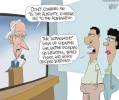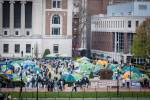Dec. 7, 1941 – Few survive, but we must all remember
Ambivalence about our martial prowess has long been part of America’s culture. We celebrate the sacrifices of our veterans, but seem a tad uncomfortable commemorating the actual victories that kept us free.
There’s good and bad in this. It’s a good thing we’re not a bloodthirsty people, always eager for war. On the other hand, on those rare occasions when committing our troops is justified, surely they deserve our whole-hearted support. They’re not trained to dispense infant formula out there on those foreign fields, after all.
Yet most Americans can name the date of only one great American military engagement, and that was a stunning defeat.
What event do we pause to remember each year on June 4? On Aug. 6? Oct. 17? Oct. 19? Dec. 26?
Many will scratch their heads. Military historian John Keegan called the ambush and destruction of three front-line Japanese aircraft carriers by the patched-together remnants of the U.S. Navy off Midway on June 4, 1942 “the most stunning and decisive blow in the history of naval warfare.”
On Aug. 6, 1945, Paul Tibbets and his crew in the Enola Gay dropped a nuclear bomb on Hiroshima. Hundreds of thousands of casualties – on both sides – had been projected in the planned October, 1945 invasion of Japan. Two bombs rendered that invasion unnecessary.
On Dec. 26, 1776, American forces defeated three brigades of Hessians in what was then the small town of Trenton, New Jersey. All four of their colonels killed, more than a thousand of the mercenaries surrendered. The impact of the victory was out of all keeping with its size; it kept Washington’s army – and America’s hopes of independence – from collapsing.
To those receiving the news in Europe, the surrenders of “Gentleman Johnny” Burgoyne at Saratoga on Oct. 17, 1777, and of Charles Cornwallis at Yorktown on Oct. 19, 1781, seemed equally unthinkable.
All stunning victories. Yet most American calendars name only one date for a battle – Pearl Harbor Day.
Historians now tell us it the notion that the Japanese might attack wasn’t as unexpected at the Roosevelt White House as we once believed. Once we imposed an oil embargo on Japan, it was clear the masters of the imperial fleet might consider themselves faced with a “use it or lose it” choice.
But the presumption was that they’d strike south for the oil fields of Borneo and Indonesia. Eyewitnesses reported Franklin Roosevelt appeared “ashen” and “stunned” at our huge losses in the sneak attack on Pearl Harbor.
Isoroku Yamamoto, who’s studied in the United States, warned his more optimistic colleagues that such an attack would only “awaken a sleeping giant.” He was right.
Even Pearl Harbor has generated a mixed legacy. Since Dec. 7, 1941, three generations of Americans have sworn never to be caught unprepared, again. That’s good.
But does “being prepared” mean we must still bear the cost of stationing troops in more than 100 countries all around the globe, sustaining a military budget greater than that of all the world’s other powers, combined?
That debate will soon be joined.
There is no doubt, though, about the debt America owes the men who stood by their guns at Pearl Harbor, and who built and manned the war machine that sprang forth from that Day of Infamy.
To the few who survive, and to the many who do not – including Doris “Dorie” Miller, cook, who started Dec. 7 performing his usual duties in the mess, and ended the day winning the Navy Cross for his effective use of a 50-caliber anti-aircraft gun he’d never before fired – our undying gratitude.


















